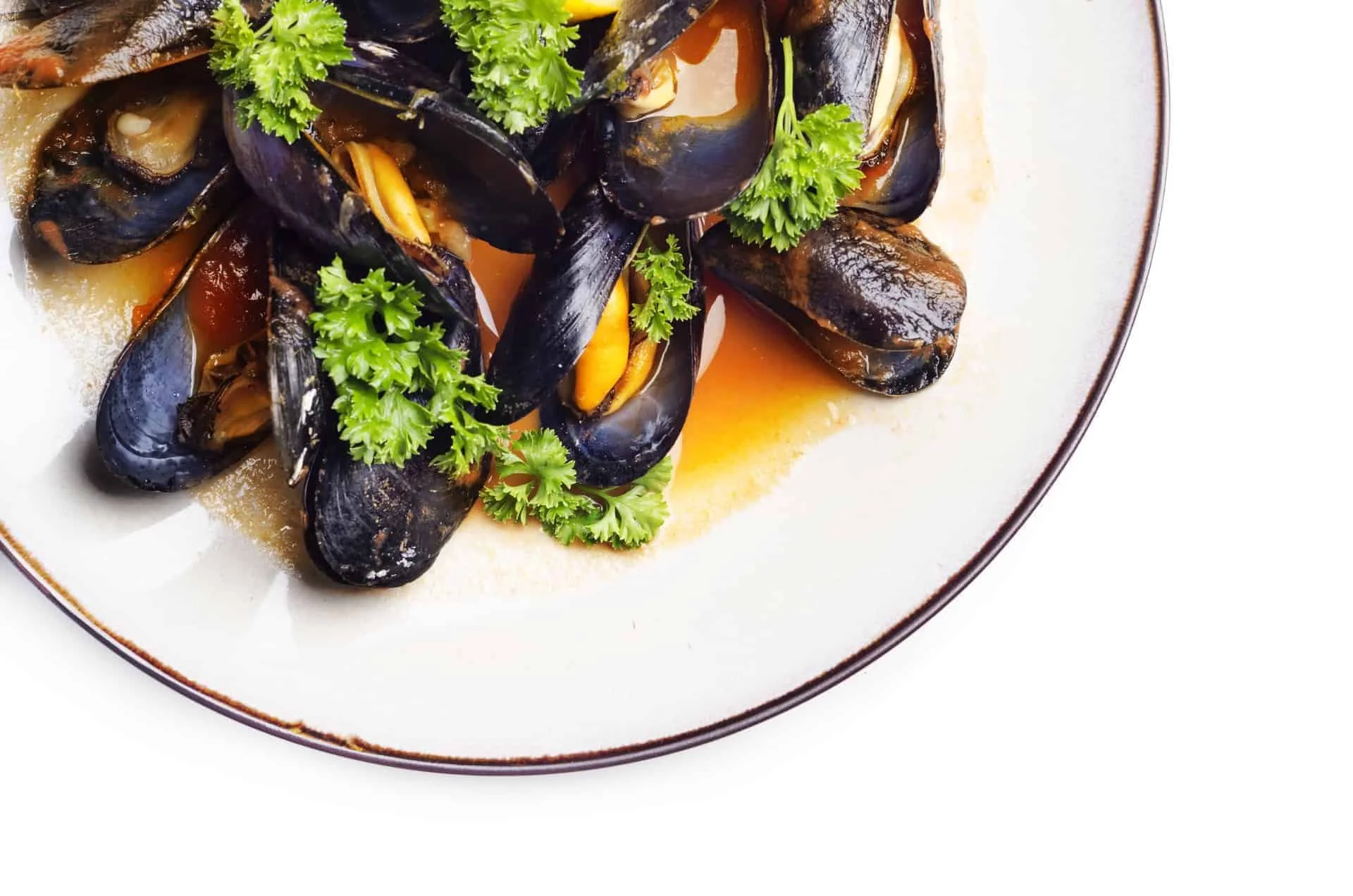Mussels (Moules Marinières)
Mussels (Moules Marinières)
I have fond memories of Moules Marinières and Steak Tartare in many a French bistro sipping a glass of local white wine with the Moules and a glass of red with the Steak Tartare. My choice always with Moules or Huitres (oysters) is a glass of Sancerre.
6 lbs mussels (scrubbed and debearded (just before cooking)*)
2 shallots
4 cups dry white wine
4 sprigs parsley
Salt and freshly ground pepper
Heat the butter in a large pot over medium-high heat. Once melted, add the shallots and cook for 2 minutes or until the shallots are soft and just beginning to brown. Add the wine and bring to a boil (turning up the heat all the way). Season with salt and pepper.
Dump the mussels into the pot and cover. Cook just until all the mussels are open all the way, about 10 minutes, no more. Shake the pot, keeping the lid firmly pressed on top, then add the parsley and shake again. At this point you can add more butter for an even richer flavor.
Pour the whole mess of mussels into a warmed serving bowl and serve.
Bon appétit!
*Farm-raised mussels are thankfully quite clean to begin with and don't require the rigorous individual scrubbing-under-water that wild mussels do, but you'll still have to give them a quick once over. Place your mussels in a colander or bowl in the sink and run them under very cold water. Rinse them to get rid of any debris or seaweed on their outer shells. If you feel any muddy spots, rub them off under the water, but you're very unlikely to with farm-raised mussels. Mussels attach themselves to stable surfaces using thin, sticky membranes referred to as "beards." Again, most farm-raised mussels will come debearded already, but the odds are good you'll find a couple of stubborn beards left over. When you find one, grasp it between your thumb and forefinger and pull it downwards towards the hinged-end of the mussel shell. Pull firmly until it comes out and discard. If you have trouble gripping the beard with just your fingers, a dry paper towel can help. Mussels, clams and other bivalves tend to gape open when they're dead, but not all gaping mussels are dead yet. Some of them are just relaxing (or perhaps stressing, if it's possible for bivalves to do such a thing). If you happen to spot any gaping mussels in your bowl, you can check for signs of life by picking them and squeezing them a few times or knocking them with another mussel, clack clack clack. The mussel should slowly close itself back up. If it doesn't, you've got a dead one on your hands. Toss it in the trash and move on with your life.
Wine pairing: Serve with a very aromatic dry white wine.

